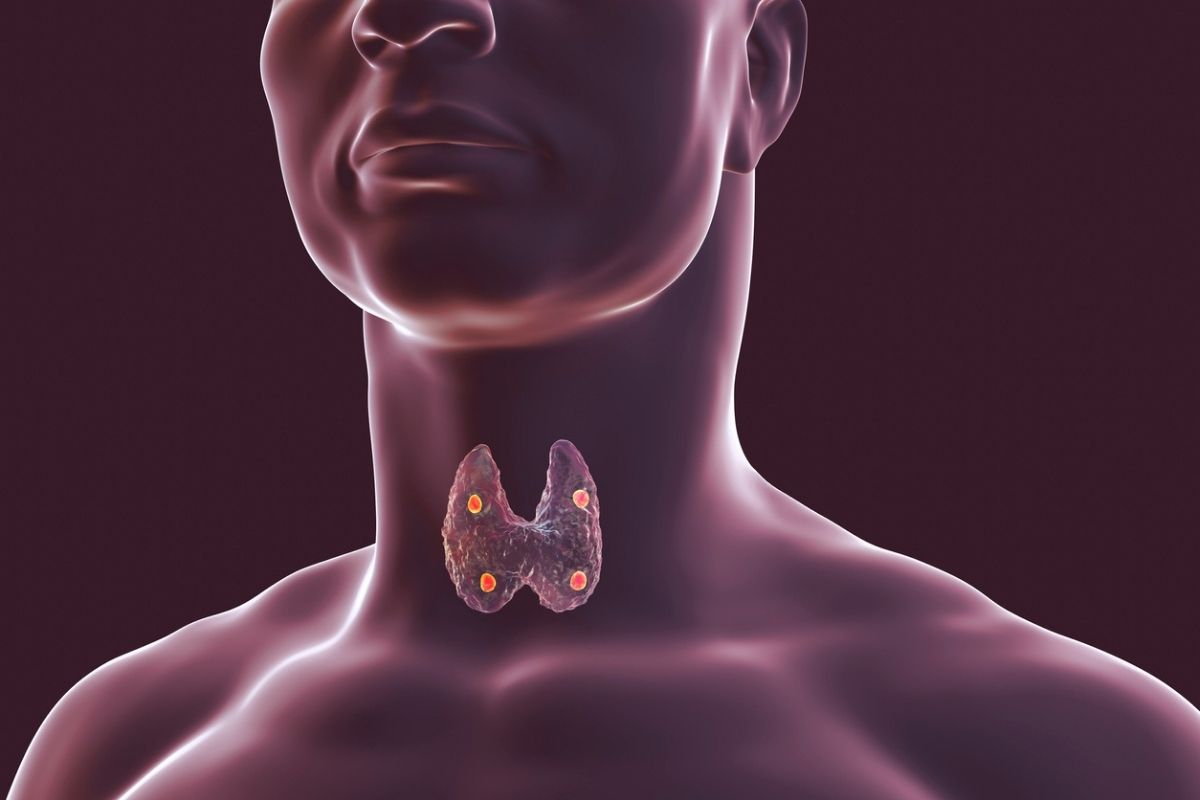
Nephropathy Deafness Hyperparathyroidism is a rare genetic disorder that affects the kidneys, hearing, and parathyroid glands. This condition can lead to kidney disease, hearing loss, and issues with calcium regulation in the body. Understanding this complex syndrome is crucial for those affected and their families. In this blog post, we will explore 25 intriguing facts about Nephropathy Deafness Hyperparathyroidism, shedding light on its causes, symptoms, and management. By the end, you'll have a clearer picture of how this condition impacts daily life and what steps can be taken to manage it effectively. Stay tuned for a deep dive into this rare but significant health issue.
Key Takeaways:
- Nephropathy, deafness, and hyperparathyroidism can be caused by genetic mutations and chronic kidney disease. Early diagnosis and treatment are crucial for better outcomes.
- Managing these conditions requires ongoing care, including regular check-ups, support groups, and education. Family involvement and mental health care are also important for living well with these conditions.
Understanding Nephropathy Deafness Hyperparathyroidism
Nephropathy, deafness, and hyperparathyroidism are complex medical conditions. When combined, they present unique challenges. Here are some intriguing facts about this rare combination.
-
Nephropathy refers to kidney damage or disease. It can lead to kidney failure if untreated.
-
Deafness can be congenital or acquired. It affects communication and quality of life.
-
Hyperparathyroidism involves overactive parathyroid glands. This leads to high calcium levels in the blood.
Causes and Risk Factors
Understanding the causes and risk factors can help in early diagnosis and management.
-
Genetic mutations often cause these conditions. Specific genes may be involved.
-
Family history increases the risk. If relatives have these conditions, your risk is higher.
-
Chronic kidney disease can lead to nephropathy. Diabetes and high blood pressure are common culprits.
-
Exposure to loud noises can cause deafness. Prolonged exposure damages the inner ear.
-
Vitamin D deficiency is a risk factor for hyperparathyroidism. It affects calcium absorption.
Symptoms and Diagnosis
Recognizing symptoms early can lead to better outcomes. Diagnosis involves various tests.
-
Fatigue and weakness are common in nephropathy. Toxins build up in the blood, causing these symptoms.
-
Hearing loss is the primary symptom of deafness. It can be partial or complete.
-
Bone pain and fractures are signs of hyperparathyroidism. High calcium levels weaken bones.
-
Blood tests are crucial for diagnosis. They measure kidney function, calcium levels, and more.
-
Hearing tests help diagnose deafness. Audiologists use various methods to assess hearing.
-
Imaging tests like ultrasounds can detect kidney damage. They provide detailed pictures of the organs.
Treatment Options
Treatment varies based on the specific condition and its severity. Here are some common approaches.
-
Medications can manage symptoms. Blood pressure drugs help in nephropathy, while hearing aids assist with deafness.
-
Surgery may be necessary. Parathyroidectomy removes overactive glands in hyperparathyroidism.
-
Dialysis is essential for severe nephropathy. It filters waste from the blood.
-
Hearing implants can restore hearing. Cochlear implants are a popular option.
-
Lifestyle changes are crucial. A healthy diet and regular exercise benefit all three conditions.
Living with Nephropathy Deafness Hyperparathyroidism
Managing these conditions requires ongoing care and support. Here are some tips for living with them.
-
Regular check-ups are vital. They help monitor the conditions and adjust treatments as needed.
-
Support groups offer emotional support. Connecting with others facing similar challenges can be comforting.
-
Education is empowering. Learning about the conditions helps in making informed decisions.
-
Assistive devices improve quality of life. Hearing aids, dialysis machines, and mobility aids are examples.
-
Mental health care is important. Chronic conditions can lead to anxiety and depression.
-
Family involvement makes a difference. Loved ones can provide support and encouragement.
Final Thoughts on Nephropathy Deafness Hyperparathyroidism
Understanding nephropathy deafness hyperparathyroidism can be challenging, but knowing the facts helps. This rare condition affects the kidneys, hearing, and parathyroid glands, leading to a mix of symptoms. Early diagnosis and treatment are crucial for managing the condition effectively. Regular check-ups, a balanced diet, and staying informed about the latest research can make a significant difference.
Remember, each person's experience with this condition is unique. Support from healthcare professionals, family, and friends plays a vital role in navigating daily challenges. Stay proactive about your health, and don't hesitate to seek help when needed.
By staying informed and connected, you can better manage nephropathy deafness hyperparathyroidism and improve your quality of life. Keep learning, stay positive, and take control of your health journey.
Frequently Asked Questions
Was this page helpful?
Our commitment to delivering trustworthy and engaging content is at the heart of what we do. Each fact on our site is contributed by real users like you, bringing a wealth of diverse insights and information. To ensure the highest standards of accuracy and reliability, our dedicated editors meticulously review each submission. This process guarantees that the facts we share are not only fascinating but also credible. Trust in our commitment to quality and authenticity as you explore and learn with us.
